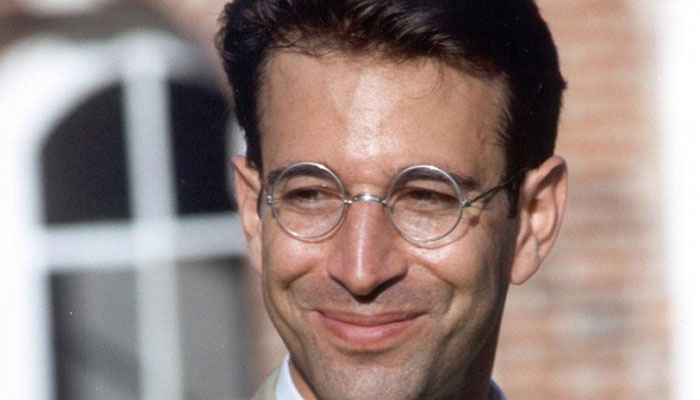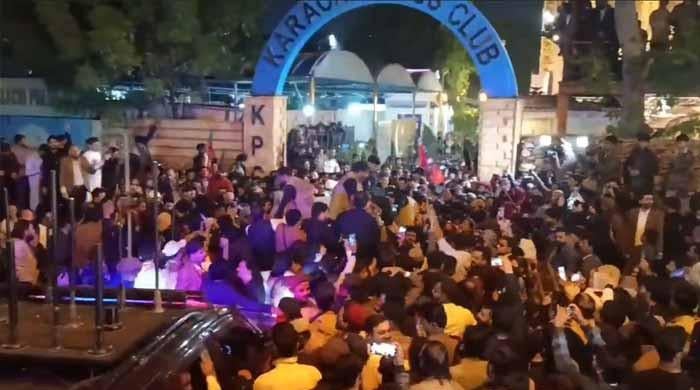Daniel Pearl case: SC asks Sindh government for 'solid evidence', record of trial court
Supreme Court says Sindh government cited 'irrelevant provisions' in its Daniel Pearl petition
June 02, 2020

ISLAMABAD: The Supreme Court of Pakistan demanded 'solid evidence' of slain journalist Daniel Pearl's kidnapping and the complete record of the trial court from Sindh government, on Monday.
A three-member bench of the apex court, comprising Justice Mushir Alam, Justice Manzoor Malik and Justice Qazi Muhammad Amin Ahmed, heard the criminal petition filed by the Sindh government for leave to appeal against the judgment passed by Sindh High Court (SHC) on April 2.
The Sindh government had moved the apex court to set aside the SHC's judgment of overturning the death sentence for the prime accused, British-born Ahmed Omar Sheikh, and the acquittal of three other accused in the kidnapping and beheading case.
On April 2, a two-member bench of the high court, headed by Justice Mohammad Karim Khan Agha, had overturned the death sentence for Sheikh, who was convicted 18 years ago by an anti-terrorism court in Pearl's kidnapping and beheading case.
The court had also overturned the convictions of three other men – Fahad Naseem, Syed Salman Saqib and Sheikh Muhammad Adil – in the case. The court had held that three of the four accused ‘not guilty’ while the prime accused Sheikh’s death sentence was overturned into a seven-year jail sentencing.
The accused had filed an appeal with the high court against their convictions by the trial court after they were found guilty of abducting and killing Pearl. On Monday, Farooq H Naek, counsel for Sindh government, and Prosecutor General Sindh appeared before the Supreme Court.
The apex court observed that the Sindh government, while seeking suspension of the judgment, cited irrelevant provisions. Justice Manzoor Malik said that first the court should be provided with solid evidence pertaining to Pearl's kidnapping and directed the counsel for the provincial government to provide the complete record of the trial court.
The judge further said that the top court had to examine whether the confession and identification parade was in accordance with the law or not. Meanwhile, the court adjourned the hearing for date-in-office (indefinite period).
Originally published in The News









